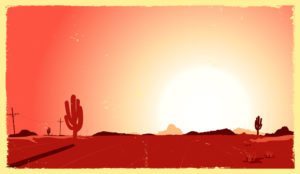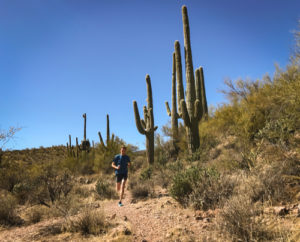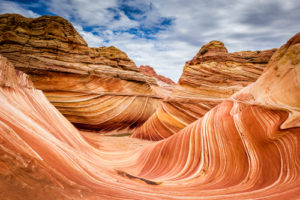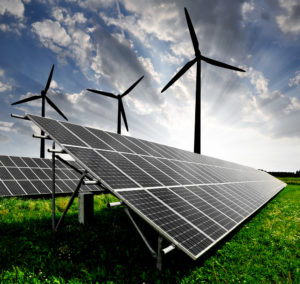RED HOT TUCSON

Or “This is the desert, Mr.Brown,” (a marching quick-step, apologies to Irving Berlin’s WW2 ditty.)
A couple of summers ago, the ever-helpful National and Local weather Service pronounced one of their Heat Warning Advisories to the region. Not unusual. You’re up for the sun’s warmth. That Tucson heat feels so good on old bones, and you’re pretty aware of old Sol’s forceful rays pounding on your brain if he gets out of hand. But just in case you missed it, they tell you.
 Not to say they overstate the obvious; there are after all tourists passing through – among them lots of foreign youth inflated with an irrational sense of invulnerability – they clearly need a heads up. This unlucky day, the imprudent students, euro travelers exploring this side of the Pond, went striding out, unaccustomed to such heat but intent on proving their toughness.
Not to say they overstate the obvious; there are after all tourists passing through – among them lots of foreign youth inflated with an irrational sense of invulnerability – they clearly need a heads up. This unlucky day, the imprudent students, euro travelers exploring this side of the Pond, went striding out, unaccustomed to such heat but intent on proving their toughness.
Of course, they do have hot spells over there. Once on a chorus tour we simmered with sweat trickling down our legs to pool up in our shoes, in huge cathedrals whose massive stones had heated up to a nice baking temperature. But that’s rare, in Europe.
And anyway, that’s not even close to what our southwest desert can slam you with. This time, arrogant German youths shrugged, sniffed at the warning, hiked out in 117 F temps that rose to 124 F, bearing just a small bottle of water. They collapsed and died, fried on the trail. One chickened out early and barely made his way back to be hospitalized, but lived to tell about it.
To locals, the desert’s heat, besides providing warmth, is an acknowledged shimmering, tongue-parching, water-stealing, life-withering normality. Strange, to strangers. Exciting, dramatic, for those who get a delighted frisson of fear, watching the thermometer’s little red line climb into the three-digits – watching it safely from indoor air-conditioned coolness. If it weren’t for that air conditioning, flourishing Tucson would still be a mere settlement fighting desiccation on cactus festooned plains.
 But the same indoor climate control that allowed NASA’s space program to operate in Houston put this place into the hearts and minds of big sky seekers and settlers, the adventurers and sight-seers of the world’s grandest of sensuous red-stoned canyons, places wind and water-sculpted through eons to bring heart-lifting elation to those who get to see them. Just a couple of hours north.
But the same indoor climate control that allowed NASA’s space program to operate in Houston put this place into the hearts and minds of big sky seekers and settlers, the adventurers and sight-seers of the world’s grandest of sensuous red-stoned canyons, places wind and water-sculpted through eons to bring heart-lifting elation to those who get to see them. Just a couple of hours north.
Looking out across the wide valley to its far mountain horizons, once the open range of the horseback cowboy and the pioneer wagon, Indians and palefaces – if you squint just so, far-spreading grids of streets seem to blur into an overlying sheet like pale bubble-pack, pooches and pockets of cooling air conditioning that harbor homes, businesses, restaurants, museums, hospitals. God help us all if the power fails. It’ll be quite beyond the rain-dancing Kokopele, the area’s Indian god of all sorts of fertility including rains for agriculture.
That in mind, towering wind farms and solar collectors are sprouting on braced legs in fields and on roofs. The paleface is clever, by gum. No electrical failure is going to rob him of his paradise. One way or another, he will use Mother Nature to give him what he needs. It’s a struggle, but anything good is worth the struggle. And he likes that sun’s warmth on his creaky body.
There’s a huge crater punched out of the earth’s surface north of Tucson, just east of Flagstaff, a big dent where a long-ago meteor appeared out of the cosmos and whanged the world quite smartly. A “come-see-me” for the curious. What happened when it happened? The whole globe maybe jiggled like Jell-O. Probably sent up a giant, lingering cloud of sky-hiding dirt, a colossal solar screen. That could happen. No sun, no solar power. For how long? Solar collectors as solutions are a small, slow beginning.
Could it revert? Never would happen. Tucson heat feels too good. In moderation. Better learn how to store it once they’ve got it.
They’re working on it.
*(From my forthcoming book, A Love Letter to Tucson)
Some like it hot!! Love your pictures!
In comfortable a/c we peer through wide windows , admiring our tough wildlife, wondering how they can stand it out there. Not so red hot today. 0nly in the 80s so far. Nice.
Wonderful, descriptive writing, MLC😀
Love the 3 hyphenated word description of heat “tongue-parching, water-stealing, life-threatening”.
Very enjoyable article to a former desert rat.
Hugs😍
Folks die about every year from the heat in similar fashion to the German youths. kkI love reeiving your blog with your descriptive writing. I’m glad I’m on your list.
Well said AND with great pontificating points! I DO love your style of writing!! Love you!!